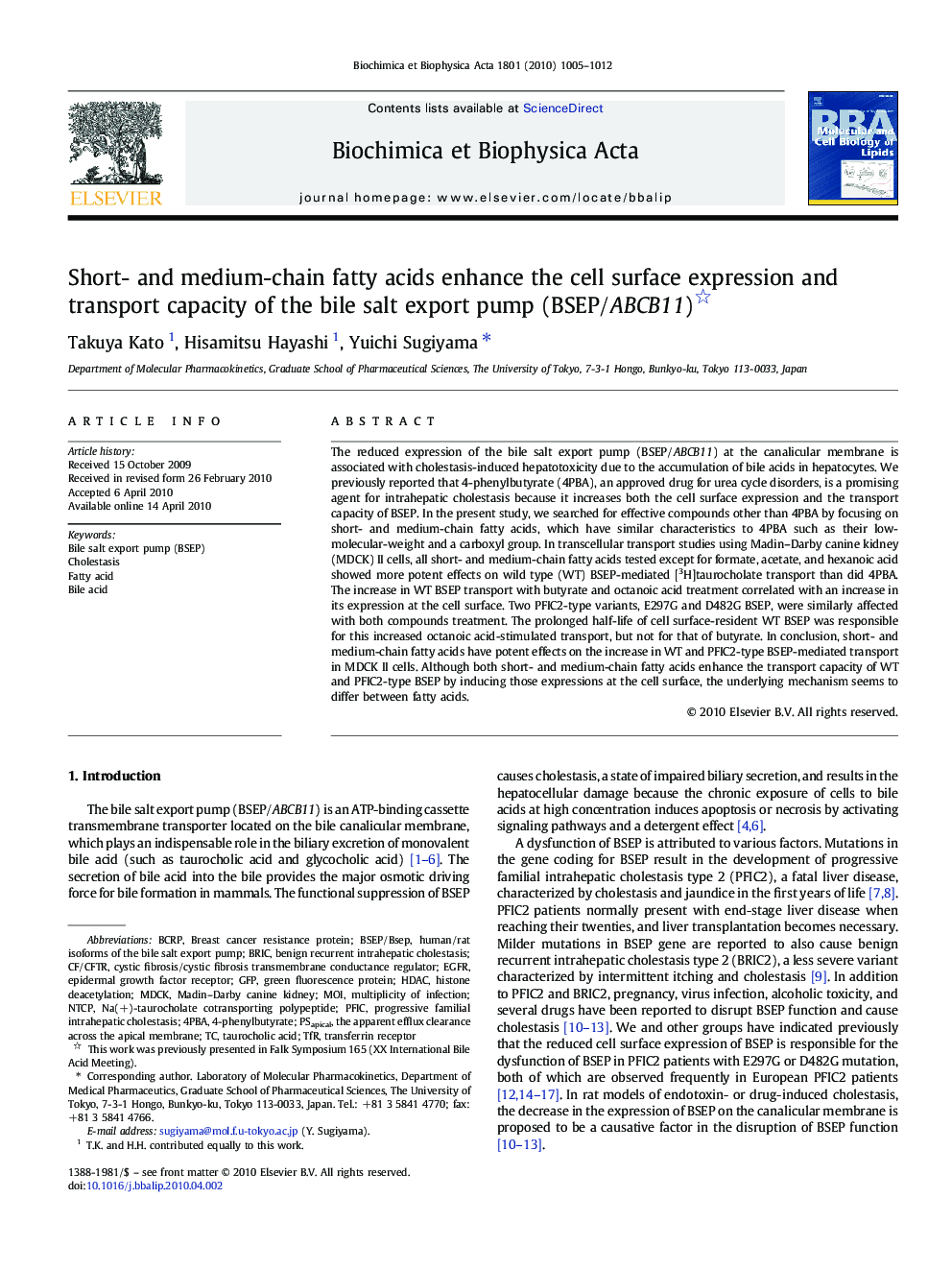| Article ID | Journal | Published Year | Pages | File Type |
|---|---|---|---|---|
| 8303306 | Biochimica et Biophysica Acta (BBA) - Molecular and Cell Biology of Lipids | 2010 | 8 Pages |
Abstract
The reduced expression of the bile salt export pump (BSEP/ABCB11) at the canalicular membrane is associated with cholestasis-induced hepatotoxicity due to the accumulation of bile acids in hepatocytes. We previously reported that 4-phenylbutyrate (4PBA), an approved drug for urea cycle disorders, is a promising agent for intrahepatic cholestasis because it increases both the cell surface expression and the transport capacity of BSEP. In the present study, we searched for effective compounds other than 4PBA by focusing on short- and medium-chain fatty acids, which have similar characteristics to 4PBA such as their low-molecular-weight and a carboxyl group. In transcellular transport studies using Madin-Darby canine kidney (MDCK) II cells, all short- and medium-chain fatty acids tested except for formate, acetate, and hexanoic acid showed more potent effects on wild type (WT) BSEP-mediated [3H]taurocholate transport than did 4PBA. The increase in WT BSEP transport with butyrate and octanoic acid treatment correlated with an increase in its expression at the cell surface. Two PFIC2-type variants, E297G and D482G BSEP, were similarly affected with both compounds treatment. The prolonged half-life of cell surface-resident WT BSEP was responsible for this increased octanoic acid-stimulated transport, but not for that of butyrate. In conclusion, short- and medium-chain fatty acids have potent effects on the increase in WT and PFIC2-type BSEP-mediated transport in MDCK II cells. Although both short- and medium-chain fatty acids enhance the transport capacity of WT and PFIC2-type BSEP by inducing those expressions at the cell surface, the underlying mechanism seems to differ between fatty acids.
Keywords
PFICTFRBRIC4PBAGFPBSEP/BsepHDACNtcpBcrpMDCKEGFR4-PhenylbutyrateMOITaurocholic acidBile acidFatty acidHistone deacetylationGreen fluorescence proteinbreast cancer resistance proteinmultiplicity of infectioncholestasisBenign recurrent intrahepatic cholestasisProgressive familial intrahepatic cholestasisMadin–Darby Canine Kidneytransferrin receptorEpidermal growth factor receptor
Related Topics
Life Sciences
Biochemistry, Genetics and Molecular Biology
Biochemistry
Authors
Takuya Kato, Hisamitsu Hayashi, Yuichi Sugiyama,
